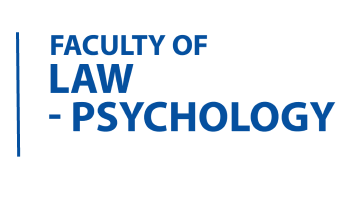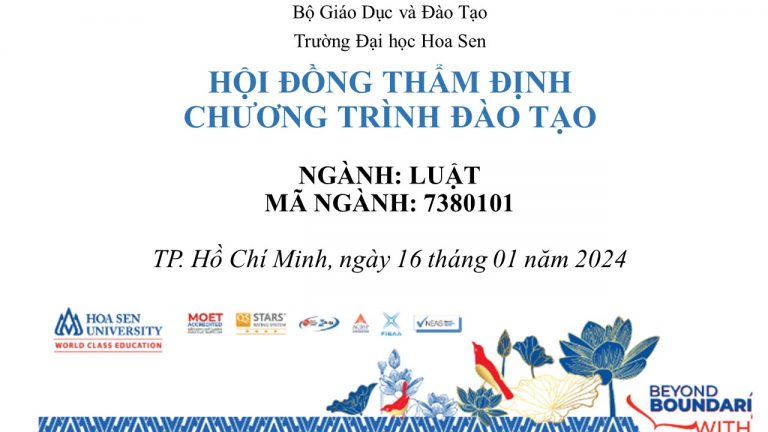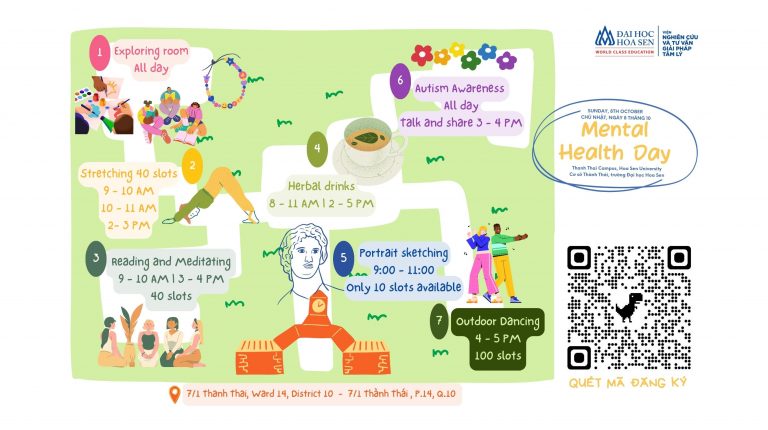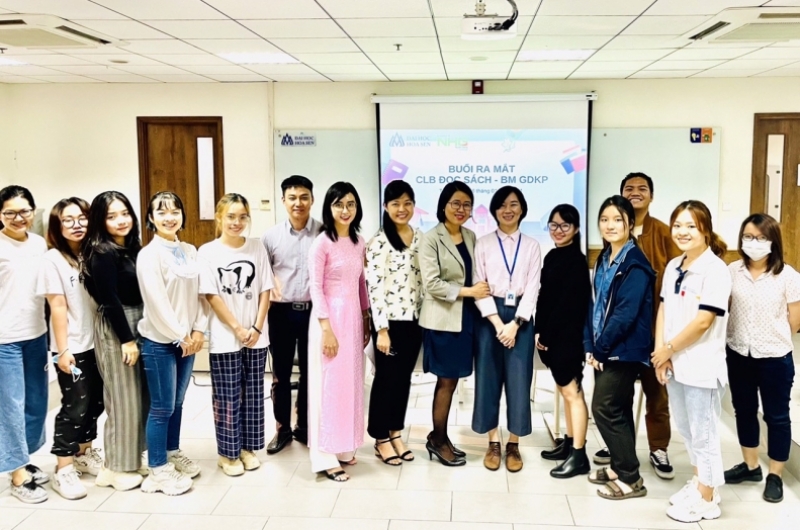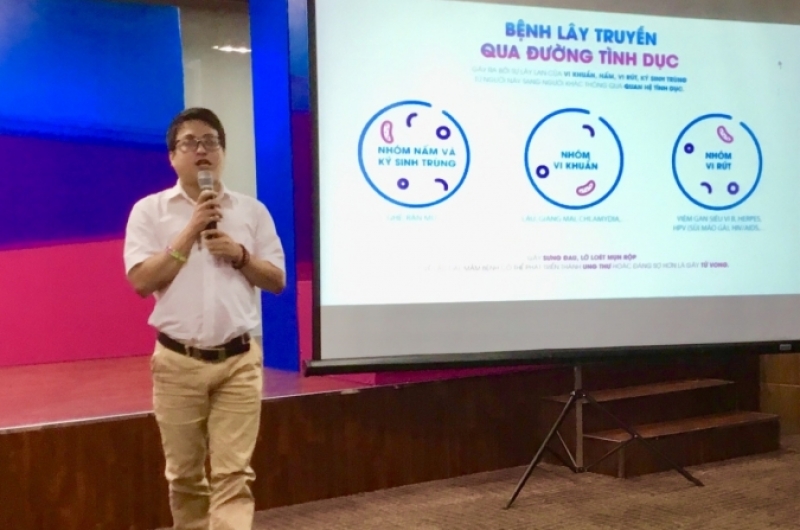The new book “SOCIAL WORK: PERSPECTIVES & THEORY”
September 23, 2019
NEW BOOKS
SOCIAL WORK: PERSPECTIVES & THEORY
Editor: Doan Thi Ngoc
Lecturer, Faculty of Social Sciences, Hoa Sen University
Year 2019 – Publisher: Hong Duc
SYNOPSIS
Social Work is a helping profession, an applied science based on human rights, and a foundation of liberal education. The social work industry has been developing for more than 100 years in the world and is developing very rapidly in terms of training programs in Vietnam. The knowledge focus of the social work profession is the conceptual framework of Person in Environment (PIE=Person in Environment) or ecosystem, the Strengths perspective, Systems theory, and an emphasis on professional principles and ethical standards that guide Guide daily professional practice. Social work is not only for students majoring in social work but also for students majoring in other majors because learners will have an additional PIE theoretical lens, ecosystem, system, and strengths to solve challenging problems. knowledge in everyday life at the local level and global context.
LEARNING MATERIALS STRUCTURE
The document is compiled into 7 chapters by author Doan Thi Ngoc. The content of each chapter is summarized as follows:
Chapter 1: Social Issues & History of Development of Social Work: Learners understand an overview of the history of the formation and development of social work in the UK, in the US, and Vietnam. Learners understand the cultural background and war situation of Vietnam, practice based on the Vietnamese context, and integrate with the international context.
Chapter 2: What is the Social Work Profession? Learners understand information about the focus of social work, the mission, goals, general principles, functions, and scientific methods of social work. Learners understand, become familiar with, and begin to practice the intervention process including the steps: “receiving and approaching – evaluating – intervening – evaluating” at a basic level or a problem-solving model based on systems thinking. system, PIE in social work. The intervention process in social work emphasizes the partnership between social workers (social workers) and clients or clients (TC). When communicating with clients, social workers need to demonstrate a professional, trusting yet friendly, warm, sincere, flexible, empathetic, ethical and sensitive attitude.
Chapter 3: The role of social workers. Learners have a basic understanding of the ethical qualities, qualifications, and capabilities of social workers, especially emphasizing the core professional values of the social work sector. Knowledge in Chapter 3 also mentions the roles of social workers such as catalysts, connectors, regulators, etc. to help clients understand the resources available from their families and communities so that they are motivated, Have confidence in self-determination, self-control, self-help, and aim for new solutions to life’s problems. Social workers need to clarify their role for the client and not create the illusion that the social worker will help solve all problems for the client.
Chapter 4: Code of ethics for the social work profession. Learners are provided with basic knowledge about ethical principles and ethical standards of Vietnam, the world, Africa, and America and two models of ethical decision-making in practice. When practicing, social workers need to clarify with the TC and relevant parties their ethical responsibilities to the TC and society.
Chapter 5: Strength perspective. Learners will focus on understanding the concept of the Strengths Perspective, the seven principles of the strengths perspective, the five types of strengths perspective questions, and a few commonly applied models of social work. The Strengths perspective is central to the social work profession and this perspective is combined with the People in the Environment (PIE) perspective, the ecological perspective, and the systems perspective to assess needs and strengths such as reputation, knowledge, finances, and resources of client systems. From this knowledge, learners will begin to practice assessing strengths by using five types of questions to discover and understand what is available to individuals, families, groups, organizations, and communities.
Chapter 6: System Theory. Learners will explore basic, familiar knowledge through the lens of systems theory, and generational and ecological diagram assessment tools to understand family relationships and surrounding systems. client. Systems theory helps social workers understand the dynamic, complex, and intertwined interactions of relationships among individuals, families, organizations, and communities. In general, systems theory helps social workers learn and identify how a system works, what aspects of that system hurt society, and understand what elements of the system can create problems. create positive changes for TC, orient and plan to help with complex situations in daily life. Systemic knowledge will be applied at 3 levels of practice: micro, meso & macro in the social work industry.
Chapter 7: Three levels of practice in social work. Learners will be provided with knowledge about three levels of social work practice and practice case study analysis. Practicing social work at the micro level is working with individuals, families, and small groups to help individuals change. Practicing mesosocial work is working with extended families and organizations to change the institution and culture of the organization. The macro level of social work practice works with the community and society to change large systems, values, advocacy, and policy analysis,…promoting the participation of TCs or people in solving key problems. topic of our community.
In short, this document not only includes the structure of seven chapters but also closely integrates the theory and practice of skills, professional values, professional attitudes, and 10 case studies. Each chapter has exercises to train awareness, self-awareness, attitudes, professional values, and professional behavior with learning and practicing in class or on E-learning. Each exercise will help students self-study and discover their qualities and abilities to become professional social workers.
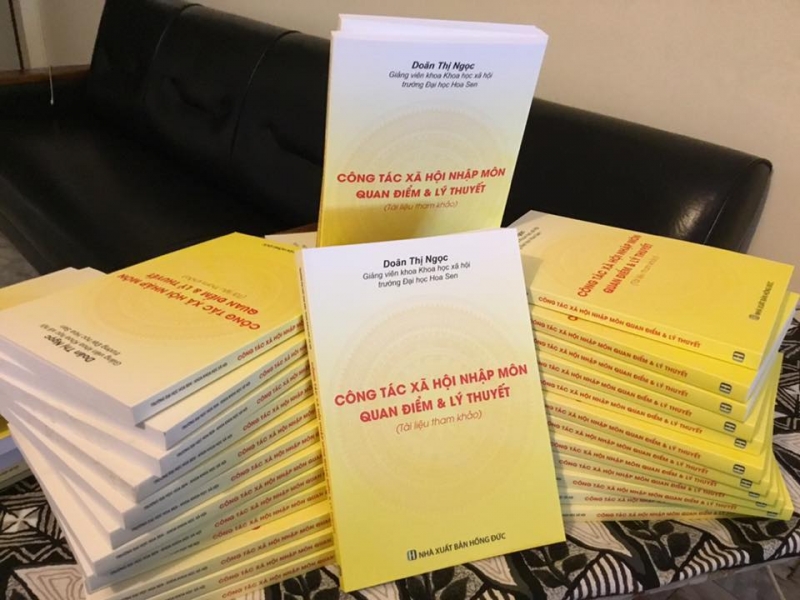
Note: To read books, please go to the Hoa Sen University library or if interested in buying books, please contact Hoa Sen University Bookstore on Nguyen Van Binh Book Street, District 1, Ho Chi Minh City. Thank you very much!
Article & photos: Doan Thi Ngoc
